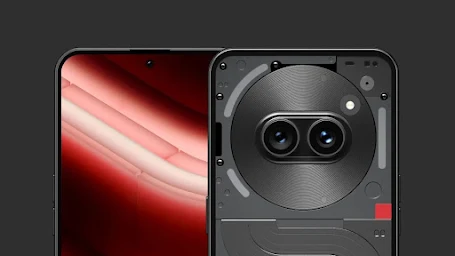A round-up of the biggest Google/Android-related news that broke this week.
This is Android Central's News Weekly, your go-to source for a short roundup of the most important tech stories of the week. This is where we find the top titles that provide the latest developments contributing to the digital landscape This week, the Nothing Phone 2a launches, a Google employee is accused of stealing AI tech, the Pixel ditches its March update, Windows 11 drops Android app support, and YouTube gets a version of the TikTok video editing tool.
Nothing comes to phone 2a
Earlier this week, Nothing finally dropped its new phone 2a, intended to be a budget Android phone. The phone has a MediaTek Dimensity 7200 Pro processor, a 120Hz AMOLED display and a dual-camera system. Phoen 2a is made of nothing but 100% recycled aluminium, tin and copper. The company told Android Central that it used scrap material from its Nothing Ear 2 production to build the phone.
While Nothing wants to make its phone available globally, people in the US can get their hands on the phone through the Nothing developer program for a fee of just $349.
Ex-Google worker accused of stealing AI
A former Google employee was charged on Wednesday (March 6) with stealing Google's artificial intelligence technology and secretly working with two Chinese companies.The report said 38-year-old Linwei Ding, a Chinese national, was arrested in Newark, California. Ding was hired by Google in 2019 and was responsible for developing software deployed in Google's supercomputing data centers. With access to this information, Ding began transferring sensitive Google trade secrets and other confidential information to his private Google cloud two years ago."Ding continued periodic uploads until May 2, 2023, during which time Ding uploaded more than 500 unique files containing confidential information," the US Department of Justice said.
After the theft, Ding was offered the position of chief technology officer at a startup AI company in China and attended investor meetings for that company. The report also claimed that Ding served as the founder and CEO of a China-based startup company to train AI models powered by supercomputing chips.He was charged with four counts of theft of federal trade secrets, and if convicted, Ding faces a maximum sentence of 10 years in prison and a fine of up to $250,000 for each count.
Pixel's March Feature Drop
Google is back this week with another feature drop for the Pixel Watch and Pixel Phone. Users can now post 10-bit HDR videos directly to Instagram Reels and Ultra HDR images on social media apps. These features will be available through feature drops for Pixel phones, including the Pixel 7 series, Pixel 8, Pixel 8 Pro, and Pixel Fold.The Pixel 6 series and above with the Pixel Fold in the US are getting an upgrade to the Call Screen functionality. The new update introduces a "hello" chip, which users can tap while screening a call. This triggers Google Assistant, which "will then prompt the caller to speak, helping you understand why they're trying to reach you."
Circle to Search is coming to the Pixel 7 series. Users can long-press the Pixel home button or navigation bar and circle the screen to learn about an image, text, or video on the screen—all without the app.Additionally, several other Pixel devices are getting quick pairing features, casting features, and the ability to convert handwritten notes written by finger or stylus into document formats.
Microsoft releases Android
On Tuesday (March 5), Microsoft announced that it will get rid of Android app support for Windows 11 through its Windows Subsystem for Android (WSA) within a year. So, users have until 2025 before app support disappears entirely.Microsoft first brought native support for Android apps to Windows 11 in 2021 The service enabled Windows PC users to discover popular Android apps through the Microsoft Store and download them through the Amazon Appstore The company said that all apps and games that rely on its subsystem for Android apps will no longer work after the given date.
The company did not immediately disclose any reason behind the cancellation. However, they said, "We are grateful for the support of our developer community and are committed to listening to feedback as we develop the experience."Ultimately, it was revealed that the decision was motivated, of course, by revenue, as well as a lack of support from Google.
Expand YouTube video editing features
After launching the YouTube Create app last September, YouTube is now bringing its video-editing tools to additional markets. The streaming platform has announced that YouTube Create has now expanded to 13 additional countries. The app, which was initially exclusive to eight countries, will now be available in Spain, Hong Kong, Brazil, Australia and more.
YouTube Create is intended to give video creators a user-friendly toolbox for creating videos on the go. The app looks a lot like CapCut, which is owned by TikTok-owner ByteDance. CapCut offers nifty built-in creative tools and great AR and AI filters, and YouTube is trying something similar for its Shorts.
Creators can split and trim videos, experiment with effects, and select royalty-free music to mix with the original audio of video clips. The app includes another tool called Audio Cleanup, which improves the audio quality of smartphone-recorded clips by reducing background and ambient noise.With this new Creator app, YouTube aims to simplify an otherwise complicated video editing process.
Tags
SMART PHONE REVIEWS






